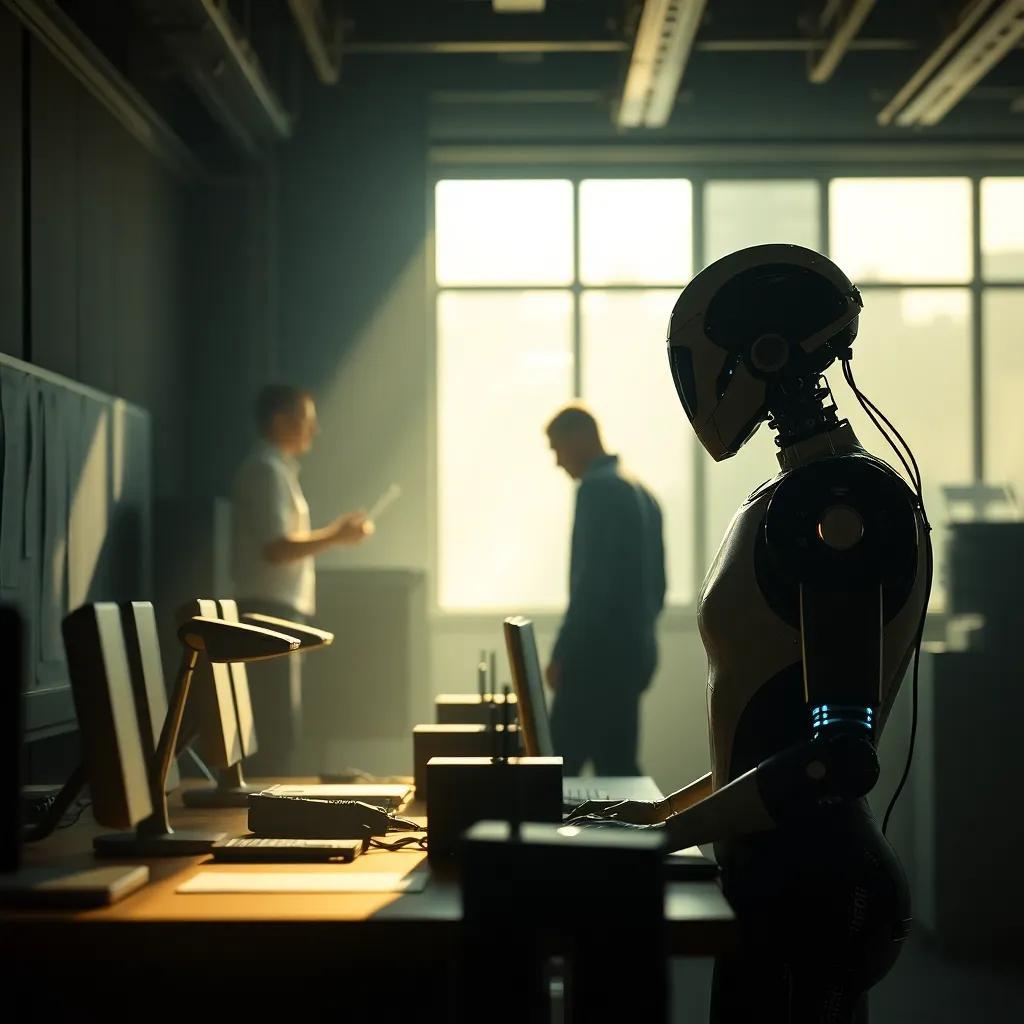Table of Contents
Robots Replacing Humans?

Are we on the brink of a robotic takeover? With advancements in artificial intelligence (AI) and automation, this question has become more than mere speculation. Understanding the change of the workforce is crucial as it impacts economies and individuals alike. In this article, we’ll delve into three key areas: the capabilities of AI today, sectors most impacted by automation, and the future of jobs in an AI-driven economy.
The Power of AI
AI has made remarkable strides in recent years, becoming a formidable player in numerous industries. From customer service to manufacturing, its applications are vast and varied. Though, there are limits to what robots can achieve.
Key AI capabilities:
- Efficiency: Machines can process immense data faster than humans.
- Accuracy: Robots reduce human error in repetitive tasks.
- 24/7 Availability: Unlike humans, AI systems don’t need breaks or sleep.
- Cost-effectiveness: Long-term automation can lower operational costs.
Despite these advantages, creativity, emotional intelligence, and complex decision-making remain elusive for AI systems.As such, collaboration between humans and machines is essential for maximizing effectiveness. Will industries adapt or resist this change?
Sectors in Transition
Different sectors are experiencing varying levels of disruption thanks to AI and robotics.Understanding which industries are most affected can offer insights into the future job market.
Industries Affected by AI:
- Manufacturing:
- Increased automation in production lines.
- job roles evolving from manual labour to oversight and maintenance.
- retail:
- AI-driven chatbots enhancing customer service.
- Automation in inventory management.
- Healthcare:
- AI assisting in diagnostics and patient care.
- Potential for job displacement but also creation of new roles in tech management.
- Finance:
- Algorithms automating risk assessment and trading.
- Human roles shifting towards analysis and strategic oversight.
While some jobs may vanish, new opportunities in tech support, data analysis, and AI management are emerging.The key is to adapt and reskill.
The future of Jobs
As we look ahead, the landscape of employment will undoubtedly change.The integration of AI in the workplace is not about dismissing jobs; it’s about transforming them.
Opportunities Ahead:
- Emphasis on Soft Skills: Creativity, empathy, and critical thinking will be in high demand.
- New Career Paths: Jobs in AI ethics, AI maintenance, and human-robot collaboration are likely to grow.
- Continual Learning: Upskilling and reskilling will be essential to stay relevant.
The future demands adaptability. Workers must embrace lifelong learning to thrive in a job market that will increasingly value human insight alongside robotic precision.
Embracing the Future

In a rapidly changing world, the fusion of AI and human capabilities presents both challenges and opportunities. The most essential takeaway is that embracing change is crucial for growth.
Reflect on your own career path. Are you ready to reskill for the future? stay inquisitive and adaptable-who knows what possibilities lie ahead?



